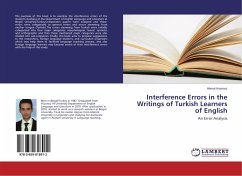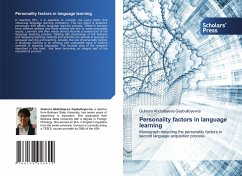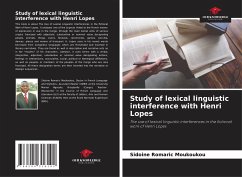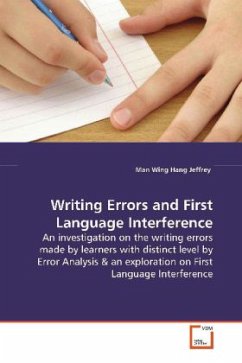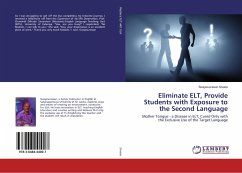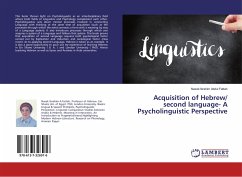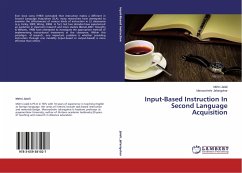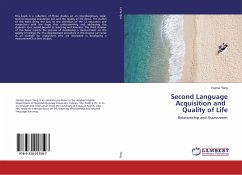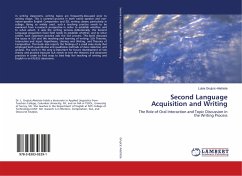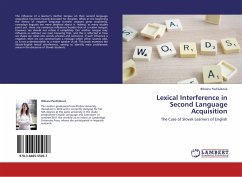
Lexical Interference in Second Language Acquisition
The Case of Slovak Learners of English
Versandkostenfrei!
Versandfertig in 6-10 Tagen
32,99 €
inkl. MwSt.

PAYBACK Punkte
16 °P sammeln!
The influence of a learner s mother tongue on their second language acquisition has been heavily discussed for decades. While at the beginning the theory of negative language transfer enjoyed great popularity, nowadays linguists are more skeptical about it. Indeed, as many studies point out, there are numerous influences besides that of a native tongue; however, we should not refuse it completely. Our mother tongue may influence us without our even knowing that, and this is reflected in how we shape our ideas into words, phrases and sentences. If such influence is negative, then we can communi...
The influence of a learner s mother tongue on their second language acquisition has been heavily discussed for decades. While at the beginning the theory of negative language transfer enjoyed great popularity, nowadays linguists are more skeptical about it. Indeed, as many studies point out, there are numerous influences besides that of a native tongue; however, we should not refuse it completely. Our mother tongue may influence us without our even knowing that, and this is reflected in how we shape our ideas into words, phrases and sentences. If such influence is negative, then we can communicate a message which either sounds odd, or is not understandable to a native speaker at all. This book examines the Slovak-English lexical interference, aiming to identify main problematic areas in the discourse of Slovak students.




